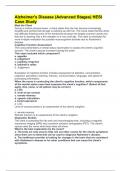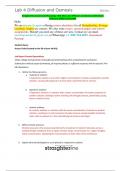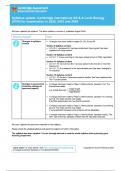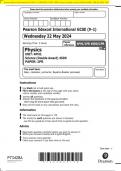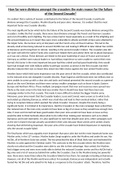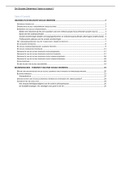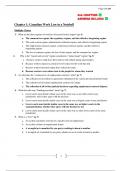Tentamen (uitwerkingen)
Alzheimer's Disease (Advanced Stages) HESI Case Study Questions And Answers With Verified Solution 2023/2024
- Vak
- Instelling
Alzheimer's Disease (Advanced Stages) HESI Case Study Meet the Client During a routine physical exam, a client states that she has become increasingly forgetful and worries that old age is catching up with her. The nurse notes that the client has difficulty finishing some of her sentences because...
[Meer zien]
